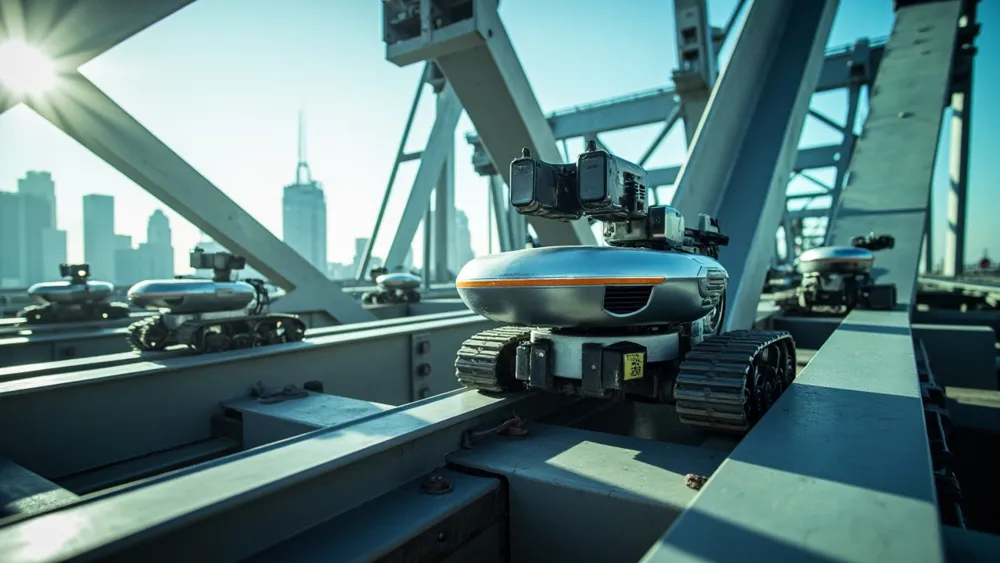Gecko Robotics raises $125M, valuing infrastructure startup over $1B.

The recent funding achievement by Gecko Robotics, raising $125 million and achieving a valuation of $1.25 billion, signifies not just a milestone for the company, but also an inflection point within the broader landscape of infrastructural innovation. Given the growing concerns surrounding aging infrastructure and the heightened demand for automation, Gecko's ascension to unicorn status is emblematic of a pivotal shift where investors are increasingly channeling resources into companies that utilize artificial intelligence to enhance operational efficiency and safety. This trend is particularly noteworthy as it aligns with global infrastructure investments which, according to the World Economic Forum, could reach up to $94 trillion by 2040. The emergence of firms like Gecko, which utilize robotics and AI for critical infrastructure inspections, positions them at the center of a transforming market.
Analyzing the funding dynamics shows that Gecko's ability to scale from a mere appraiser of infrastructure to a valued partner for defense, energy, and manufacturing illustrates a strategic pivot that reflects both consumer demand and regulatory need. The statistics are telling: the company has raised $347 million since its inception, emphasizing a robust investor confidence in a sector often overlooked despite its significance. Furthermore, as companies strive for operational efficacy, Gecko's AI-driven platform, Cantilever, is proving the utility of technology in reducing operational costs while enhancing productivity—showcasing potential EBITDA margins that could appeal to profit-seeking institutional investors. This operational optimization could democratize access to more consistent and safe infrastructure management, reducing the risk of failures reminiscent of the 2008 financial crisis, where delayed infrastructure investments exacerbated systemic vulnerabilities.
However, it is prudent to question the long-term sustainability of such rapid advancements and funding inflows in the AI-infused infrastructure space. While Gecko Robotics is making commendable strides, the market's over-expectation for quick returns could lead to a bubble reminiscent of the dot-com era, where many promising technologies failed due to scaling challenges. Critics may argue that excessive reliance on robotics to replace human roles presents an unintended consequence—displacement of labor in traditional sectors that could foster socioeconomic unrest. Regulatory bodies may also face challenges in adapting existing frameworks to accommodate these rapid technological advancements, potentially stalling growth or hampering innovation. Therefore, the forthcoming adjustments that employees and regulators must make in response to technologies such as Gecko's are not just logistical, but foundational as they could dictate the long-term vision for integrating AI within critical sectors.
Read These Next

First Intelligent Robot 4S Store to Open in Beijing E-Town This August
In August, Beijing will open the first 4S store for intelligent robots, revolutionizing robotics with sales, service, and parts.

Beiji Tech & Stardom Era Forge Strategic Humanoid Robot Partnership
Beiji Technology and Star Era have partnered to enhance humanoid robots in logistics, boosting efficiency and customer experience.

Enhancing Financial Integrity: A Look at the Company’s Responsibility Accountability System
This article examines the company's new governance measures aimed at improving financial disclosure accuracy and transparency, exploring its potential impact on performance and associated risks.
